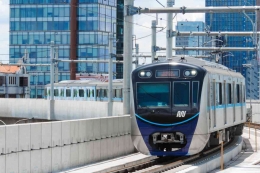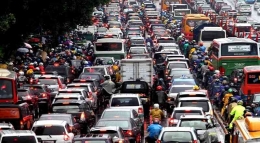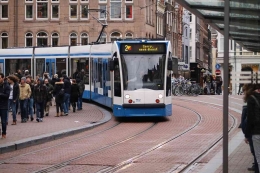Sound transport strategies and policies will be crucial to boosting Indonesia's economic growth and achieving the Sustainable Development Goals, specifically Goal 9 to ''build resilient infrastructure, promote sustainable industrialization and foster innovation'' and Goal 11 to "make cities inclusive, safe, resilient and sustainable".
Based on the article by transport consultant Tomás Herrero Diez entitled "How can Indonesia achieve a more sustainable transport system?", there are several important priorities Indonesia must tackle to develop a more sustainable transport system:
- Expansion and modernization of the maritime, rail, and air networks to increase transport efficiency across the nation
- Creating efficient, affordable, and green public transport networks in the main urban areas, including by building more Bus Rapid Transit, light rail, or heavy rail systems, and by investing in energy-efficient, low-emission public transport vehicles
- Developing infrastructure, policies, and communications to encourage the use of non-motorized transport, including safer corridors for pedestrians and cyclists
- Promoting the implementation of stricter vehicle emissions standards to improve vehicle energy efficiency
- Restricting private car use through the implementation of fees in heavily-congested areas
- Encouraging the use of electric vehicles through incentives, such as tax exemptions and the construction of a wide network of charging stations
- Enhancing private sector participation and limiting the role of State-Owned Enterprises to foster a more competitive environment.
By developing the Bus Transit Rapid (BRT) system, Indonesia needs to learn from Singapore in managing mass transportation (BRT) from time to time, in terms of implementing 3 in 1 in Singapore, as at the beginning of the jockeying. But in the end, it can be eliminated, namely by implementing an ERP (Electronic Road Pricing) system so that public transportation in Singapore is currently very convenient.
However, for the sake of smooth integrated public transportation, Indonesia is currently in need of an injection of funds. As discussed by Plt. Assistant Deputy for Connectivity Infrastructure, Coordinating Ministry for Maritime Affairs and Investment Lukijanto said Indonesia needed funding from the private sector to finance the development of integrated public transportation in urban areas.
This is because state finances are very limited, while the need for public transportation development must be implemented as quickly as possible.
"The integration of funding sources for the development of mass transportation is of course with the limited APBN allocation for the infrastructure sector and limited regional fiscal capacity, so funding initiated by loans or grants also needs to be integrated with other creative funding sources," he said at the 2022 Sustainable Transportation Forum in Bali International Convention Center, Thursday (20/10).
According to him, cities are being targeted because they contribute about 75 percent of Indonesia's carbon emissions. Thus, the development of integrated public transportation is one solution so that people can switch from private vehicles.
"We also know that the transportation sector is the third largest contributor to greenhouse gas emissions in Indonesia. Therefore, we need to carry out a transformation, namely the transportation sector towards sustainable transportation," he explained.
"Well, of course, this is done with various strategies for developing urban mass public transportation systems. One of them is a plan for sustainable urban mobility and integration," he explained.
He considered this development to be a necessity because the transportation industry, apart from being the largest carbon emitter, also consumes a large budget from subsidies.
This is reflected in this year's energy subsidies, which swelled more than three times from the previous Rp170 trillion to Rp502 trillion due to the increase in world oil prices. So, this step in addition to reducing carbon emissions also eases the burden of state budget subsidies.









